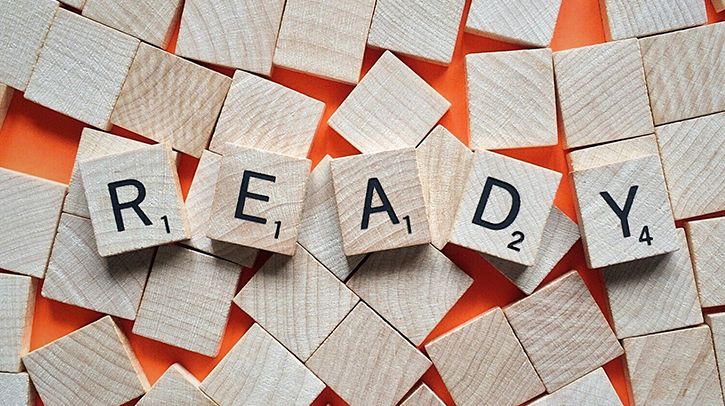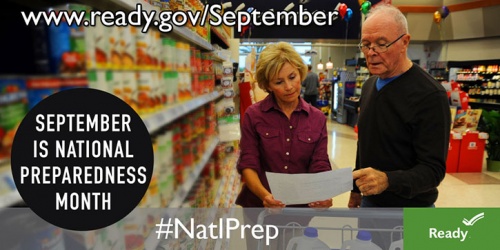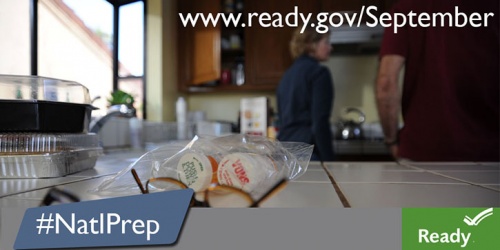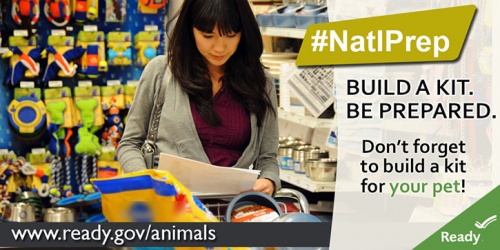Thinking About & Preparing For Disasters

As my friend handed me a large bill to reimburse me for US Open tickets, I thought, “I can use this to start my emergency fund!” Before I started working for the Episcopal Relief & Development US Disaster Program, that never would have happened (I know that smaller bills are better, but I’m working on it).
Thinking about and preparing for disasters can be overwhelming. While some people take great comfort in disaster prep, there are many of us who would rather pretend that nothing bad will ever happen. The news can be overwhelming, the daily grind of life is hard, and really who has time? If you aren’t a prep person, you aren’t alone. But the times they are a changin’: 100 year floods every other month, intense fire seasons, hurricanes affecting once non-coastal communities, tornadoes, water infrastructure failures, gun violence and oh so much more.
As a native Brooklynite, my earliest relationships with disasters were the Hurricanes that we watched hit my family’s native island home, Jamaica. Well, actually… there were all the social ills of living in NYC in the 80’s and early 90’s, and there was that one hurricane that I watched bend apartment buildings because of high winds, and then there was that Northeast blackout, and there were those snowstorms, the September 11 attacks, Hurricane Sandy, and… Ok, as you can see, disasters and high hazard situations happen, to all of us.

After these “bad things” happened, they just haven’t had long lasting affects on my life. Neighbors came together, nothing really bad happened to me or my family, and everything seemed to work out. So I thought, “Why do I need to prepare?”
It took a bit of soul searching, but here’s what I concluded:
-
Thinking about the bad things causes me anxiety, destabilizing anxiety, at times. Therefore, I should not worry about being prepared.
-
I am privileged enough to live in an area with a lot of resources, and family and friends that are often prepared.
Therefore, I don’t need to be prepared. -
Preparedness is not some end result, it is a journey.
My lack of preparedness is actually an early stage of being prepared!
But then this summer happened. This summer was rough. The manmade and natural disasters seemed to just keep coming. In these times of grief I felt helpless. But I couldn’t just pray, just answer the phone and talk to church leaders working to respond, just sit by pretending like nothing bad ever happened. This summer, I embraced the fact that if any of these tragedies happened closer to home, I would not be prepared to respond. So here I am, September, National Disaster Preparedness Month, working on the US Disaster Team and feeling the need to finally do something about my state of preparedness.

Feeling like you need to do something too? Then let us begin with the Good News! There are things that you already have in place to make you more resilient.
Here’s my resiliency list:
-
I have family and friends that love me enough to let me mooch off of their preparedness
-
I have a vehicle with good gas mileage and the gas tank is usually full
-
I know where the fire exits are at work and home
-
I have a plan for what to grab on my way out if I have to leave my apartment in a rush
-
I have a well-stocked pantry/fridge/freezer
-
I have access to internet and news
-
I own several books to pass the time if I do get cut off from electricity or have to stay at home for a while
-
I own a hand-pump flashlight and matches
-
I have insurance: health, vehicle and renters’!
What do you have on your list?

Great!
What is one thing that you can accomplish this week to be better prepared?
My commitment: I will buy a fire-safe box for my important documents.
Now it’s your turn:
Now that we have made our lists, what’s going to motivate us to actually act?
-
A preparedness buddy: set a deadline and have a friend check in to see how the progress is going.
-
Boosting my personal resilience will enable me to be a better helper. If you aren’t doing it for yourself, think of the folks that depend on you or the folks you could support if you are prepared.
-
Preparedness really is a journey, don’t worry about being perfect. Doing something is almost always better than doing nothing at all.

I thank God for all the privileges of life, but “with great power comes great responsibility” (as they say in Spiderman comic books). It is my responsibility to be prepared for those who may not have as many resources, and as a member of Christ’s body, it is my calling to figure out how my gifts can be ready to support my vulnerable neighbors, to be God’s love in my community when the bad stuff happens. If you are feeling like this might be your calling too, here are a few suggestions for continuing the journey.
-
Work on making a plan for your family (best friends, spouses, partners, pets, children, matriarchs/patriarchs, in-laws, or whomever you really want to connect with after a disaster).
-
Put together a congregation phone tree so that you can check in with each other and let folks know that church is canceled during the next ice/rain/snow storm.
-
Fill out your church profile at episcopalassetmap.org, so that we all can know what gifts we have as a church to respond to disasters.
-
Use A Season of Resilience bulletin inserts to build more resilience in your congregation.
- Feeling like you have gifts to give in the time of a disaster? Sign up for Ready to Serve.
———————————–

Tamara Plummer, is the Asset Map Coordinator at Episcopal Relief & Development.
Images: All images used in blog courtesy of Ready.gov.


